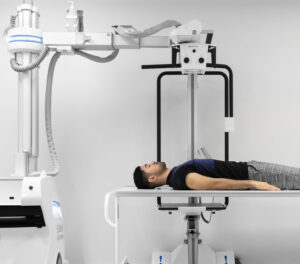
Artificial Intelligence and Machine Learning have rapidly transformed various industries, including healthcare. From disease diagnosis and prediction to drug discovery
Dialyzers, available in both single-use and multi-use options, are crucial devices used in hemodialysis to filter waste, excess fluids, and toxins from the blood. These devices consist of a semipermeable membrane that mimics the function of healthy kidneys. Single-use dialyzers are designed for one patient session, ensuring a high level of hygiene and reducing the risk of cross-contamination. Multi-use dialyzers, on the other hand, are designed for repeated use, offering cost-effective solutions while maintaining safety and performance. Both options are widely used in dialysis treatments to help patients with kidney failure maintain proper fluid and electrolyte balance.
The choice between single-use and multi-use dialyzers is an important consideration in hemodialysis. Each type has its own advantages, risks, and practical uses depending on the patient’s needs and the dialysis facility’s resources.
A dialyzer is a crucial part of hemodialysis treatment, functioning as an artificial kidney to filter waste, excess fluid, and toxins from the blood in patients with kidney failure.
Single-use dialyzers are designed for one-time use and are disposed of after each dialysis session. They offer certain benefits:
Reduced infection risk due to the lack of reprocessing.
Consistent performance as each dialyzer is new and not affected by wear and tear.
No need for reprocessing after each use.
However, these dialyzers come with higher costs per session. They are also less environmentally friendly since they create more medical waste.
Multi-use dialyzers, on the other hand, can be reused multiple times for the same patient after proper reprocessing. They are typically used for 10-15 sessions before they need to be replaced.
Cost-effective for dialysis centers, especially those with high-volume treatments.
Environmentally friendlier, as they generate less waste.
Potentially better patient tolerance for some individuals, especially those who are used to the same dialyzer.
However, multi-use dialyzers carry the risk of infections or chemical residue if the reprocessing steps (such as cleaning and sterilization) are not properly followed. Proper adherence to reprocessing protocols is essential to ensure safety. These dialyzers may also experience a slight decrease in performance with each reuse.
Single-Use Dialyzer Pros: Lower infection risk, no performance variation, no reprocessing required.
Multi-Use Dialyzer Pros: Cost-effective, more environmentally friendly, and may offer better tolerance for certain patients.
Risks with Multi-Use Dialyzers: Must be thoroughly reprocessed to avoid sterility failure and residual chemicals. Not suitable for all patients, particularly those with compromised immune systems or frequent infections.
When deciding between single-use and multi-use dialyzers, important factors to consider include the patient’s clinical condition, the dialysis facility’s ability to properly reprocess the dialyzers, the cost-effectiveness, and the environmental impact.
Both single-use and multi-use dialyzers are safe and effective when used appropriately. The choice depends on the patient’s condition, facility standards, and economic or environmental considerations. Ensuring proper protocols and individualizing care is key to the successful use of either type of dialyzer.



















Artificial Intelligence and Machine Learning have rapidly transformed various industries, including healthcare. From disease diagnosis and prediction to drug discovery

In the ever-evolving landscape of healthcare, advancements in technology continue to reshape the way we diagnose and treat medical conditions.

Ut wisi enim ad minim veniam, quis laore nostrud exerci tation ulm hedi corper turet ipsum dolor sit amet, consectetuer

To build a future in which hospitals don’t have to fight to find dependable, high-quality, and affordable medical supplies.

TOWER-6, Blossom County, Paras
Tierea, Sector 137, Noida, Uttar
Pradesh 201305
Copyright © 2024 Ren HealtQare all rights reserved.
WhatsApp us